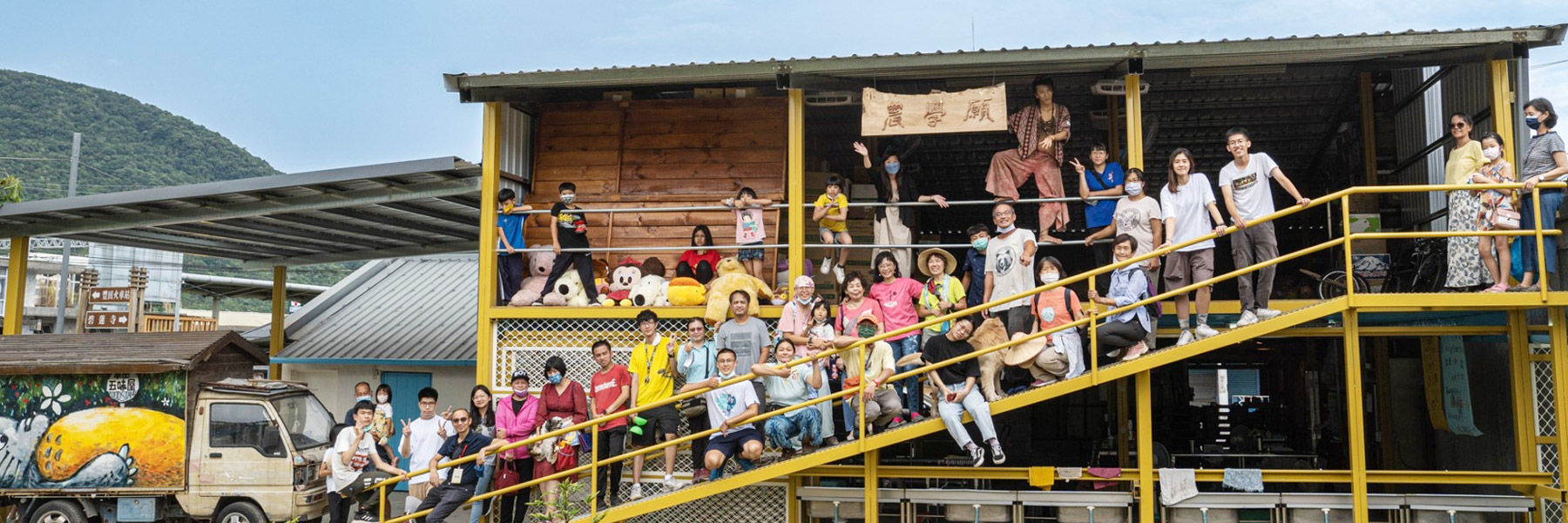This community charity shop, Wu Wei Wu (the Five-Flavour House), is located in Fengtian, a small village in Hualian County, and run by local children as well as teenagers with help from voluntary workers. The main objective of such establishment is not about economic interest but providing kids growing up in this remote area, via business transactions, with the opportunity to see the world outside, to accumulate a variety of interpersonal relationship and experience, to open up their visions, and to eventually boost their self-esteem.
All the commodities here are donations from all over Taiwan. Kids from neighbourhood communities work here for exchange of what they want, daily supplies mostly, and for exchange of knowledge and skills as well. Wu Wei Wu has so far succeeded in not only offering the kids long-term support and care as supplements to their families’ lack of certain functions, but also keeping a good pace toward the objective of being totally self-sufficient, i.e., not relying solely on governmental subsidies, due to its functioning as a second-hand shop.
The village of Fengtian represents the stereotype of any drowsy rustic village in Taiwan where young generations tend to leave for making a better living. Resulted from negative economy-related factors, such as unemployment and lower incomes, families here at Fengtian are mostly single-parenting or grand-parenting; ethno-composition, mostly indigenous people.
Most of the kids at Wu Wei Wu come from one of the typical minority groups, i.e., socially and economically disadvantaged, they hardly succeed in their studies, they have poor self-confidence, poor self-esteem, and poor self-expectation; consequently, they give up their dreams. Since they become invisible at school, lack of plans after school, their being at a loose end is highly likely to lead to more deviant behaviours.
Situated in Fengtian, a village where immigrants inhabited when Taiwan was under Japanese rule, Wu Wei Wu came to existence on August 30th 2008 when local communities strove for preserving a small hut roofed with sugarcane leaves, a traditional style of Japanese architecture known as “Feng Gu Dou” resembling the hopper of a fanning mill, from being torn down, and later coped with National Dong Hwa University on transforming the hut into an after-school education as well as recreation centre for children and teenagers from local communities.
As soon as the joint-project started, Dong Hwa began its work on not only recruiting and training Wu Wei Wu’s voluntary workers, but also mapping out how the shop was going to operate. The main idea behind the establishment of Wu Wei Wu is to have kids from local communities run their own shop; voluntary workers help only when needed. By doing so, the kids are expected to learn something from doing it, to cultivate a positive attitude towards working, to polishing a diversity of skills, and to boost their self-confidence and self-esteem. The establishment of Wu Wei Wu is indeed the realisation of the concept, “Settlement House”, in some remote village in Taiwan. According to Mr. and Mrs. Barnett, founders of the first university settlement movement, if a university’s faculty members and students are willing to stay with the poor for a while, they will be able to eliminate social inequality even by doing something insignificant, and they will be able to share with the poor the best things they have, and eventually learn something from experiencing the lives of the poor (Barnett 1884).
As far as Dong Hwa is concerned, Wu Wei Wu is the perfect place for practicing social responsibilities. In light of that, its faculty members and students have been participating in, even conducting, events and activities involving local communities. The aim behind such social practice is to help local residents, who are impoverished and/or disadvantaged, to improve the quality of their lives, and further mend the entire area. The long-term perspective of Wu Wei Wu is to become Taiwan’s own Toynbee Hall, a place where people gather together to advance knowledge, share ideas, promote peace and happiness, and reinforce services.
The name, Wu Wei Wu, came from the kids themselves; came from the wording, “Wu-Wei-Za-Chen” (one feeling complicated as the five flavours in one’s daily life are tangled together), for they have actually caught a glimpse of human lives while sorting and selling all those second-hand goods. To be more specific, “Wu Wei Wu” indicates that one gets to taste the whole five flavours of human lives simply making business deals here in this small hut.
